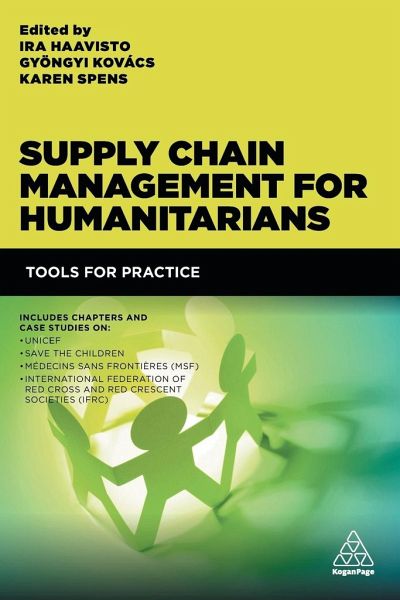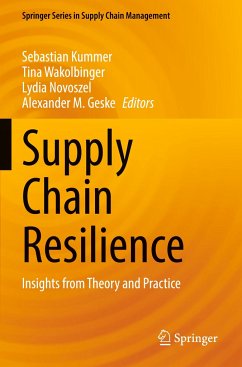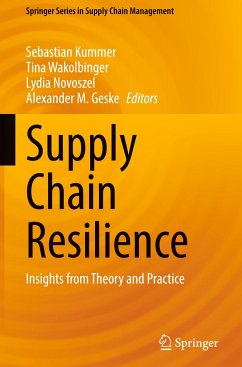
Supply Chain Management for Humanitarians
Tools for Practice

PAYBACK Punkte
28 °P sammeln!
Supply Chain Management for Humanitarians provides an in-depth insight into the management of supply chains in the context of humanitarian logistics. This accessible and practical book considers humanitarian logistics from a strategic and operational perspective.The overarching theme is collaboration and coordination, one of the biggest challenges in the humanitarian community. Supply Chain Management for Humanitarians takes a problem-based learning approach, featuring real cases and examples from leading organizations including Oxfam, Unicef, and The Red Cross.Each chapter is self-standing, r...
Supply Chain Management for Humanitarians provides an in-depth insight into the management of supply chains in the context of humanitarian logistics. This accessible and practical book considers humanitarian logistics from a strategic and operational perspective.
The overarching theme is collaboration and coordination, one of the biggest challenges in the humanitarian community. Supply Chain Management for Humanitarians takes a problem-based learning approach, featuring real cases and examples from leading organizations including Oxfam, Unicef, and The Red Cross.
Each chapter is self-standing, relating the content in each chapter to the supply chain as a whole. This enables the reader to easily dip into different sections. At the end of each chapter, there is a case study written by a leading practitioner currently working in the humanitarian field.
Supply Chain Management for Humanitarians fills a much needed gap in the market and is essential reading for humanitarians worldwide.
The overarching theme is collaboration and coordination, one of the biggest challenges in the humanitarian community. Supply Chain Management for Humanitarians takes a problem-based learning approach, featuring real cases and examples from leading organizations including Oxfam, Unicef, and The Red Cross.
Each chapter is self-standing, relating the content in each chapter to the supply chain as a whole. This enables the reader to easily dip into different sections. At the end of each chapter, there is a case study written by a leading practitioner currently working in the humanitarian field.
Supply Chain Management for Humanitarians fills a much needed gap in the market and is essential reading for humanitarians worldwide.














